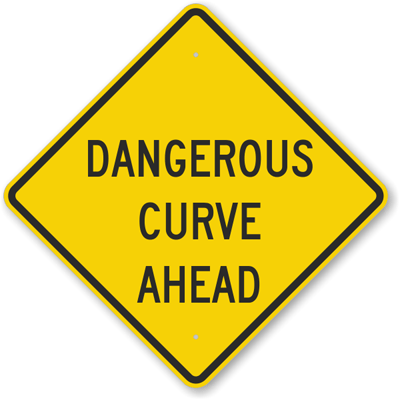 We're not used to waiting, you know. Oh, I know, you'll claim that all we do is wait, but we don't really. Do you remember how slow the internet used to be? We used to have to use phone lines and modems and all that noise. And I do mean noise. The internet was horribly, disgustingly slow, and difficult times in the mid to late nineties.
We're not used to waiting, you know. Oh, I know, you'll claim that all we do is wait, but we don't really. Do you remember how slow the internet used to be? We used to have to use phone lines and modems and all that noise. And I do mean noise. The internet was horribly, disgustingly slow, and difficult times in the mid to late nineties.we were suffering through it. That sounds like an exaggeration, but it really isn't, and it still sort of astonishes me how we made it through those
Now, it's a different story. How long did it take this page to load? Not long, I'll wager. You're not used to waiting for the web to load, you're not used to waiting in line for things, nor for waiting in traffic if you're from Regina. The greatest of this all, though, is that you're not used to waiting for stuff.
Throughout the year, if you want something, you typically go and buy it, yes? This is why consumer debt is at an all time high, is because we don't wait to get things that we want. We sort of buy it right away, and darn all dem consequences. Now this is what is leading us into a strage period in the year,
 especially strange as adults. For as adults, if you see a pair of slacks that you want, or a handbag, or whatever, you tend to go out and buy said product, yes? You tend to just go and grab whatever you feel like when you want it, but at Christmas time, things are a little bit different. For at Christmas, we have things that are for us, that we ostensibly want, things that are under the tree, things that we could unwrap and enjoy, but we wait. We wait until the day of, until the 25th, to unwrap and enjoy.
especially strange as adults. For as adults, if you see a pair of slacks that you want, or a handbag, or whatever, you tend to go out and buy said product, yes? You tend to just go and grab whatever you feel like when you want it, but at Christmas time, things are a little bit different. For at Christmas, we have things that are for us, that we ostensibly want, things that are under the tree, things that we could unwrap and enjoy, but we wait. We wait until the day of, until the 25th, to unwrap and enjoy.What the heck, right? What a bizarre, arbitrary imposition, right? And the children in our families aren't buying it (heck, they're not buying anything). They want those awesome things under the tree, and they want them right away. And you have to explain to them 'you can't have that now. It's for Christmas.'
So the kids, and you, and everyone else, we all have to be patient. We all have to wait. You can't eat the entire batch of sugar cookies before the company arrives. You can't drink all the christmas port before the merry makers arrive. You can't unwrap the gifts until the time has come. Until the fullness of time.
Lest you think this is a recent thing, though, this is a plague that befalls all human beings from the beginning of all things. This is a problem that afflicts and conflicts us, because we are people who want what we want right now-ish. And so did the people back in the day of Jesus of Nazareth. Those people had requests too, they wanted what they wanted as well, and when it came to matters religious, they had the same sort of recommendations. They said unto Jesus as he came into town 'Hosanna!'
Now, we say that same word frequently. Hosanna. We say it almost every Sunday, and it's one of those things that we say so often that we don't even think about what it means anymore, if we ever did. When our children speak to us about it, as they may, and ask us what Hosanna means, then we respond 'it means a church word that we say in church. Like Amen. Or Jesus.' Church words, spoken in churchinese. But it's not that, not really. When the crowd assembled on Palm Sunday, as they did, they did so calling out 'Hosanna!' Hosanna being an imperative for 'save us.' Save us now! This attitude about the immediacy of what you're expecting from Jesus, that informs how you look at him throughout your life. We lack perspective, we don't really have the perspective to look on things and take a big breath and see things for how they are. Frequently, in your life, you've said about things 'someday, we're going to look back on this and laugh.' Someday, but when the things are happening to you, that day isn't today.
But our attitude towards Jesus is the same as the crowd on Palm Sunday. Save us now! Deliver us now, without delay! Save us! We are pushy and anxious, and desperately want things done on our time, and not on Christ's . We want and need his action in our world, and we crave his interaction when we feel as though we're ready, not being too concerned about when he may be prepared. We know from the scriptures that he does all things for the good of those who love him, that's true, but there are many times in which we don't feel as though Jesus is moving quickly enough for us. He should deliver us from the hands of our enemies. He should heal those whom we love ,and rescue us from financial desperation. This is what his job should be, and we get a bit disappointed when he doesn't do it.
But Advent teaches us something different - it teaches us patience. It teaches us to wait. This season has at the end of it all the treats, all the joy, all the drinks, all the gifts, all that nonsense, but it has it all at the end. And this is how the kids learn patience, by waiting for the arrival of that special day. But how are you to learn patience? You grown adult? Well, you spend a lot of time waiting at this time of year too, you know. You spend time waiting in lines at the grocery store, lines at the Wal Mart, lines at the toy store, lines at the liquor store, you spend time waiting in traffic, waiting to get out of a parking spot, waiting to get into a parking spot, and you tend to think of these times as an inconvenience, as they are. You tend to think about that as time that time that is being stolen from you, a barrier to the season, a barrier to the peace and goodwill. But it is and should be teaching you patience.
Think about the promises made to God's people back in the Old Testament, the promises of a savior who was to come to the world. The promise that God would send salvation, in the fullness of time. Be honest with yourself for a second. Have you ever read the Old Testament, beginning to end? Most of us, if we're honest, would have to say no. We would say no not because we don't love Jesus, but because it's long, and kinda dry, and sort of dull, and repeats itself a bit. And we're not into that. But the people of the Old Testament had to learn patience in God, because they weren't just reading the Old Testament, they were living it. If you think it takes far too long to read the Old Testament, imagine how long it takes to live through it, from beginning to end. A bit of a pain, yes?
That's the issue facing us now, is that we are so used to getting things when we want them, that we transfer that over to our spriritual lives as well. If we dont' get what we want when we want, we are tempted to take our ball, and go home, to avoid the question of Jesus altogether, to question his goodness or even his presence at all. That's how we work, and we don't frequently think about patience. But at this time of year, when we talk about patience, about waiting, about preparing, think about all the times in which you have to wait. Think about being stuck in traffic or waiting in line at the mall. Think about how Mary and Joseph would have had to wait in long lines for the census, and would have been pushed to and fro as they tried to find a place to stay. Think about how long the people in the Old Testament would have had to have waited to see the coming of the king of kings and the dawn of salvation. And think about Simeon, who had waited until he was very old to see Jesus.
Now think about how much time you're going to spend waiting at this time of year, and reflect on the fact that waiting itself can be a spiritual discipline. You can learn a lot by waiting. By watching, waiting, and biding your time, waiting as the people of God did, waiting for his salvation to be realized. Hosanna indeed. Save us, but in the fullness of time.







